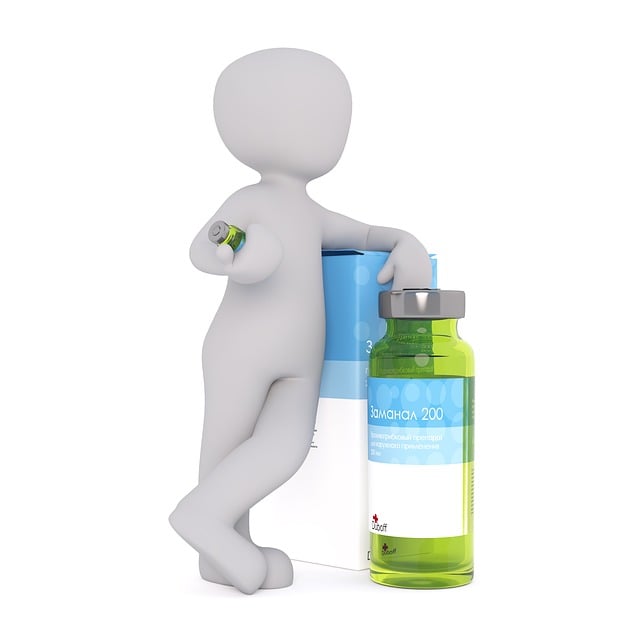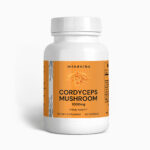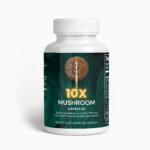
“Coping with Hair Loss: Can Supplements Promote Hair Growth?”
Hair loss can be a daunting experience for both men and women. While there are a variety of reasons for hair loss, many people would prefer to try natural remedies before resorting to more drastic measures like hair transplants and medication. Enter supplements, which have been touted as a way to promote hair growth and restore thinning hair. But do they actually work? In this article, we’ll explore the science behind supplements for hair growth and give you all the information you need to make an informed decision about whether or not to give them a try.
1. Understanding Hair Loss: Causes and Consequences
Hair loss can be a painful experience that can affect an individual’s self-esteem and confidence. Numerous causes may contribute to hair loss, leaving individuals feeling helpless and alone. However, by understanding the causes and consequences of hair loss, one can take the necessary steps to prevent and combat it effectively.
Hormonal imbalances, nutritional deficiencies, and genetics are some of the most common causes of hair loss. Hormonal imbalances, such as those experienced during pregnancy and menopause, can cause hair to fall out in large amounts. Nutritional deficiencies, such as a lack of iron, zinc or vitamin B, can weaken hair strands and cause them to fall out. Genetics can also play a role in hair loss, with some families being more predisposed to balding.
Hair loss can have several negative consequences on one’s life, such as decreased self-esteem and social isolation. Additionally, hair loss can leave individuals feeling vulnerable and exposed. However, it’s important to understand that hair loss is treatable, and there are several methods available to combat this condition. From topical treatments to hair transplants, individuals can choose a treatment option that best fits their needs and budget.
In conclusion, by understanding the causes and consequences of hair loss, individuals can take a proactive approach to managing this condition. With the right treatment, products, and lifestyle changes, individuals can restore their hair and start to feel confident and self-assured once again. So don’t wait any longer, take the first step towards reducing hair loss and regaining your self-confidence.
2. The Role of Nutrients in Hair Growth
Nutrients play a crucial role in promoting hair growth. Adequate supply of essential nutrients is essential for the growth and maintenance of healthy hair. Several vital nutrients can protect hair from damage, promote hair growth, and improve hair strength.
- Protein: Hair is made up of protein, so it is essential to consume an adequate amount of protein to boost hair growth. It supports hair growth by providing amino acids that promote hair follicle cell division and renewal.
- Vitamins: Vitamins such as Biotin, Vitamin A and Vitamin D, promote hair growth by enhancing cell division and cell growth. They also help create healthy oils in the scalp, which moisturizes hair and prevents it from breaking.
- Iron: Iron is a mineral that is essential for hair growth, as it plays an important role in the production of hemoglobin, which carries oxygen to the hair follicles. Iron deficiency can cause hair loss, which makes it vital to get enough iron from foods such as spinach and red meat.
Overall, it’s vital to maintain a healthy and balanced diet to promote hair growth. Consuming essential nutrients through a balanced diet can provide an excellent foundation for healthy hair. Additionally, dietary supplements can support healthy hair growth, but it’s essential to consult with a healthcare professional before taking any supplements.

3. Top Supplements for Hair Loss: Pros and Cons
If you’re experiencing hair loss, you may be considering taking supplements to help combat the problem. While there are many options available, here are three top supplements and the pros and cons of each:
- Biotin: Biotin is a B vitamin that is commonly used to improve hair, skin, and nail health. It can help strengthen hair and prevent breakage, but there is insufficient evidence to prove that biotin can promote hair growth in individuals who are not deficient in the vitamin. Some people also experience acne and digestive issues when taking biotin supplements.
- Saw Palmetto: Saw palmetto is a type of palm tree extract that has been used to treat hair loss in men. It is believed to block the production of the hormone DHT, which can contribute to hair loss. However, the evidence for its effectiveness is mixed, and it may cause mild side effects such as stomach upset and headaches.
- Iron: Iron deficiency is a common cause of hair loss in women. Taking iron supplements can help to improve hair health and prevent further loss. However, because excessive iron intake can be harmful, it is important to speak with a healthcare professional to determine the appropriate dosage and ensure that supplementation is safe for you.
It’s important to note that supplements are not a cure-all for hair loss. If you’re experiencing significant hair loss, it’s always best to speak with a healthcare professional to rule out any underlying health issues and determine the best course of treatment for you. Additionally, supplements can interact with medications and have negative effects on certain health conditions, so it’s important to use them under the guidance of a medical professional.

4. How to Choose the Right Supplement for Your Needs
Choosing the right supplement for your needs can seem overwhelming, but it’s an important step to achieving your health goals. Before you start your search, you need to consider a few key factors that will guide you in selecting the perfect product for you.
The first step is to define your health goal. Do you want to improve your metabolism, build muscle, increase energy, or support your immune system? Your health goal will determine what type of supplement you need. Once you have established your goal, you can then focus on the ingredients present in the supplement. Look for supplements with naturally sourced ingredients that are proven to be effective for your desired outcome. Always read the label carefully to ensure no harmful chemicals or additives are present.
Finally, consider the form of supplement you want to take. Do you prefer capsules, powders, or liquids? Each form has its pros and cons. Capsules are easier to swallow, while powders are more versatile, and liquids are absorbed faster. If you’re unsure, start with capsules as they’re easier to incorporate into a daily routine. Don’t forget, a supplement isn’t a substitute for a healthy lifestyle! Make sure that you continue to exercise, maintain a balanced diet, and get adequate sleep.
- To choose the right supplement for your needs, consider your health goal, ingredients, and supplement form.
- Read the label carefully to ensure no harmful chemicals or additives are present.
- Remember, a supplement isn’t a substitute for a healthy lifestyle.

5. Combining Supplements with a Healthy Lifestyle for Maximum Benefits
It’s important to remember that supplements are not a replacement for a healthy lifestyle, but rather a supplement to it. By combining supplements with a healthy diet and exercise regimen, you can maximize the benefits and see significant improvements in your overall health.
One key aspect of a healthy lifestyle is a balanced diet. Make sure you’re consuming a wide variety of nutrient-dense foods, including fruits, vegetables, whole grains, and lean proteins. If you’re struggling to get all the vitamins and minerals you need from your diet alone, consider adding a multivitamin to your routine.
In addition to a healthy diet, regular exercise is crucial for maintaining good health. Aim for at least 30 minutes of moderate-intensity exercise most days of the week. You may also want to consider adding a pre-workout supplement to your routine to help boost energy and endurance during your workouts.
- Remember, consistency is key! Stick to your healthy habits, and over time, you’ll start to see and feel the benefits.
- Always talk to your healthcare provider before starting any new supplement or exercise program.
By combining supplements with a healthy lifestyle, you can give your body the support it needs to function at its best. Start by making small changes to your diet and exercise routine, and gradually introduce new supplements as needed. With commitment and dedication, you’ll be on your way to achieving optimal health and wellness.
6. Other Hair Growth Strategies to Consider
There are other strategies that you can consider to achieve healthy hair growth in addition to the methods previously mentioned. Here are some options to explore:
1. Massage your scalp: A soothing scalp massage can help increase blood circulation to your hair follicles. This can also help stimulate hair growth. You can add a few drops of essential oil to your massage oil for added benefits.
2. Change your diet: Proper nutrition is essential for healthy hair growth. Make sure you are consuming enough nutrients like iron, protein, and vitamins A and D. You can get these nutrients from food sources like leafy greens, lean meats, nuts, and eggs. Also, consider taking supplements to boost your nutrient intake.
3. Limit heat styling: Constant heat styling can damage your hair and lead to breakage. To promote healthy hair growth, minimize the use of heat styling tools like flat irons and curling irons. If you must use them, use a heat protectant and keep the temperature low.
There are several strategies you can try to achieve optimal hair growth. Experiment with these different approaches and find what works best for you. Remember that healthy hair growth takes time, so be patient and consistent in your efforts. By incorporating these methods into your routine, you can achieve the full, healthy head of hair you desire.
7. Conclusion: Supplements Alone Can’t Solve Hair Loss, but They Can Help
It’s undeniable that supplements play a vital role in maintaining hair health. They can help promote the growth of hair, as well as strengthen and nourish it from the inside out. But it’s important to realize that hair loss is often a complicated issue that requires a multifaceted approach to solve completely.
In addition to supplements, factors such as genetics, stress, nutrition, and hormone imbalances can all contribute to hair loss. Therefore, while supplements can certainly help, they can’t be relied on as the sole solution for hair loss. Instead, a comprehensive approach that includes nutrition, stress management, and medical treatment may be necessary for the best results.
That being said, if you’re experiencing hair loss, there’s certainly no harm in trying supplements. Just make sure to choose high-quality ones that are backed by research and recommended by a healthcare professional. The right supplements, along with a comprehensive hair health regimen, may help you achieve the healthy and vibrant hair you desire.
- Choose high-quality supplements: Look for supplements that contain vitamins, minerals, and herbs that are specifically beneficial for hair health, such as biotin, iron, and saw palmetto.
- Consult a healthcare professional: Before taking any supplements, it’s important to consult with a healthcare professional to ensure they’re safe and effective for your individual needs.
- Adopt a comprehensive approach: Remember that supplements alone can’t solve hair loss. Adopting a comprehensive approach that includes nutrition, stress management, and medical treatment may be necessary for the best results.
If you are suffering from hair loss, there is no single silver bullet that will work for every individual. By evaluating your diet and lifestyle, coming up with a suitable supplement plan and consulting with a healthcare professional, you can take steps to ensure that you experience the best possible balance of nutrition and hair health. Don’t take risks with your health and settle for ineffective, potentially dangerous treatments when there are safer alternatives out there. Be aware of potential side effects and choose wisely. Everyone deserves to feel confident in their own hair and make sure to take proper care of your own situation.

























